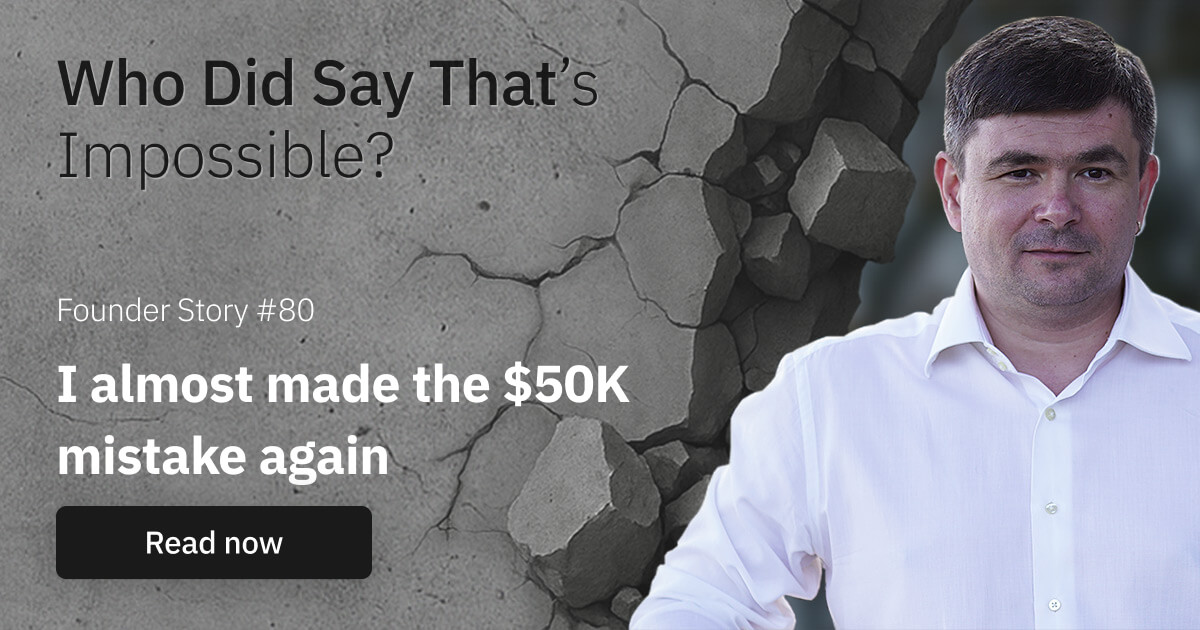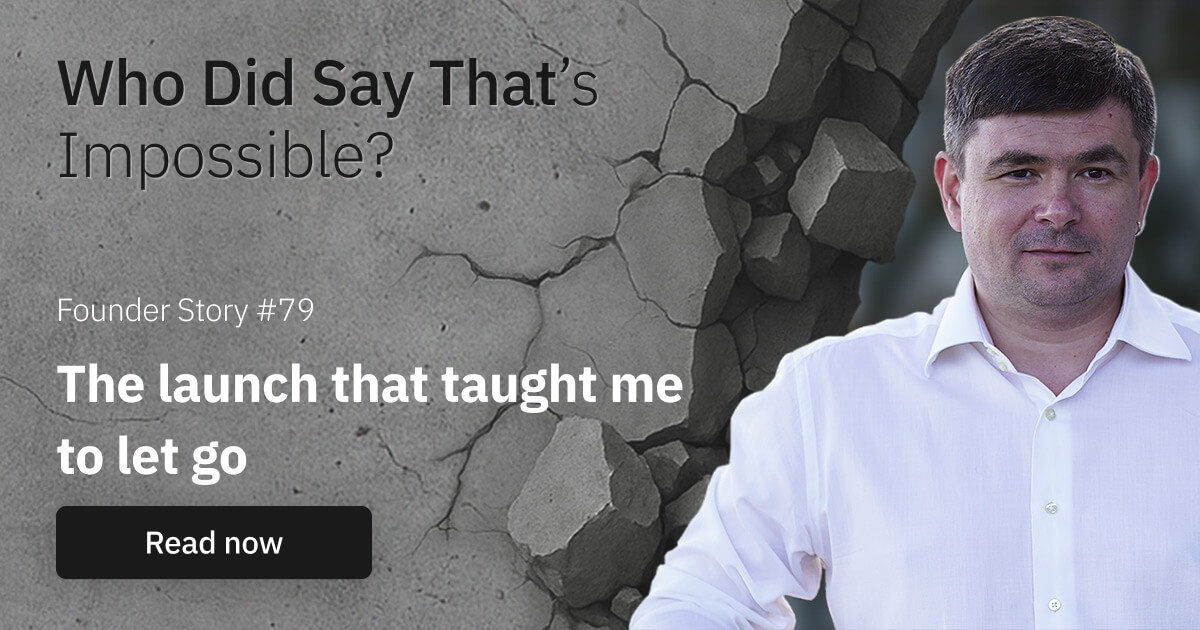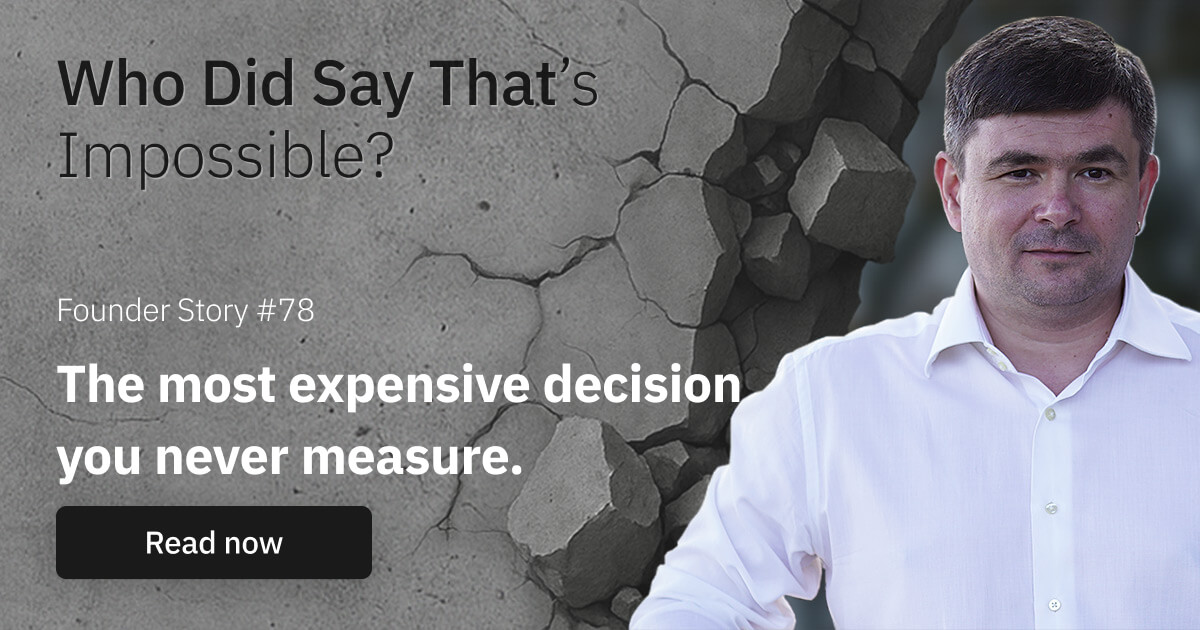The moment I realized I’d built a job instead of a business
Or minute of pride, illusion, and the trap of looking like a founder
When I opened my first office, I thought I made it.
I had a team. I had a business address. I had a car — okay, it was on credit, but still.
And for the first time in my life, I flew abroad.
It felt like success. It looked like success. And I believed it was success.
But it wasn’t.
Because what I had… wasn’t a business.
It was a job. A job I created for myself. With too much pressure, too many responsibilities, and no real control.
A Book That Slapped Me In The Face — Years Later
In The E-Myth Revisited, Michael Gerber describes three personalities inside every founder:
- The Entrepreneur — the visionary who wants to build something
- The Manager — the one trying to bring structure
- The Technician — the doer, the specialist, the “just let me do the work” type
When I read it, I saw myself in Sarah — the bakery owner from the book’s intro.
She wanted freedom, meaning, independence.
But every time things got hard, she fell back into doing what she knew.
Baking.
For me, it wasn’t baking.
It was design. It was code. It was the comfort of the familiar — disguised as responsibility.
And that’s what I did.
Every time pressure showed up, I stopped being a founder.
I went back to being a technician. Back to “doing the work” — the safe kind, the kind I knew how to do.
Because building a real business, that felt too big. Too uncertain. Too painful to get wrong.
Pride Looks Like Progress — Until It Breaks
I was lucky.
A client became a mentor, then a partner.
He brought me projects, advice, credibility.
It felt like the universe had given me a shortcut.
But shortcuts come at a price.
When the 2007 crisis hit, the stream dried up.
One call from my partner changed everything: “No clients. No money. You need to cut the team.”
And suddenly, my dream collapsed.
I wasn’t in control. I wasn’t prepared. And I realized, painfully, that I hadn’t built a business.
I’d built a stage. It looked impressive. But behind the curtain, there was nothing holding it up.
The Founder Returns When the Illusion Dies
That month changed me.
I had to face my fears — of selling, of rejection, of doing “the scary stuff.”
I started writing cold emails. Started learning how to talk about money.
How to track expenses. How to plan.
The entrepreneur in me, the one I thought was gone, came back.
Because I had no choice.
And slowly, things started moving again.
Not perfectly. Not glamorously. But for real.
This time, it was my business.
My clients. My revenue. My responsibility.
And that responsibility didn’t feel heavy anymore.
It felt like freedom.
If You’re Always Doing the Work, You’re Not Running a Business
Let’s be honest.
If you’re constantly drowning in your task list, doing the work, fixing the bugs, answering the emails, you don’t have a business.
You have another job.
Only this one doesn’t come with health benefits.
Or bonuses.
Or time off.
It only comes with pressure.
Risk.
And the nagging fear that if you stop, even for a day, everything collapses.
The only way out of that trap?
You stop identifying as the Specialist.
And start acting like the Entrepreneur again.
Even if it scares you.
Even if you don’t feel ready.
Even if the voice in your head says: “Let me just finish this one thing first…”
Let that voice go.
And build something real.
Disclaimer.
Every business has its nuances, and every founder has their unique context and resources. Whether or not my advice applies depends on your situation, experience, and needs. But one thing is universal—use your brain.
Think about how to apply the advice in your context before acting.
Your way.
- Eugene
Join the “most offbeat” Businessletter on entrepreneurship.

Hi, I’m Eugene.
Over the past 20+ years, I’ve grown an international agency from one-person freelance to a multimillion-dollar business. I’ve led teams, scaled systems, burned out, rebuilt, and learned (the hard way) what it really takes to run a business that doesn’t consume your life.
I help them make sense of complexity, design simple systems, and create the kind of business they actually want to run.
More Stories
Founder Stories

I almost made the $50K mistake again
Or minute of catching myself repeating a dangerous pattern

The launch that taught me to let go
Or minute of realizing you can know the answer and still ignore it


